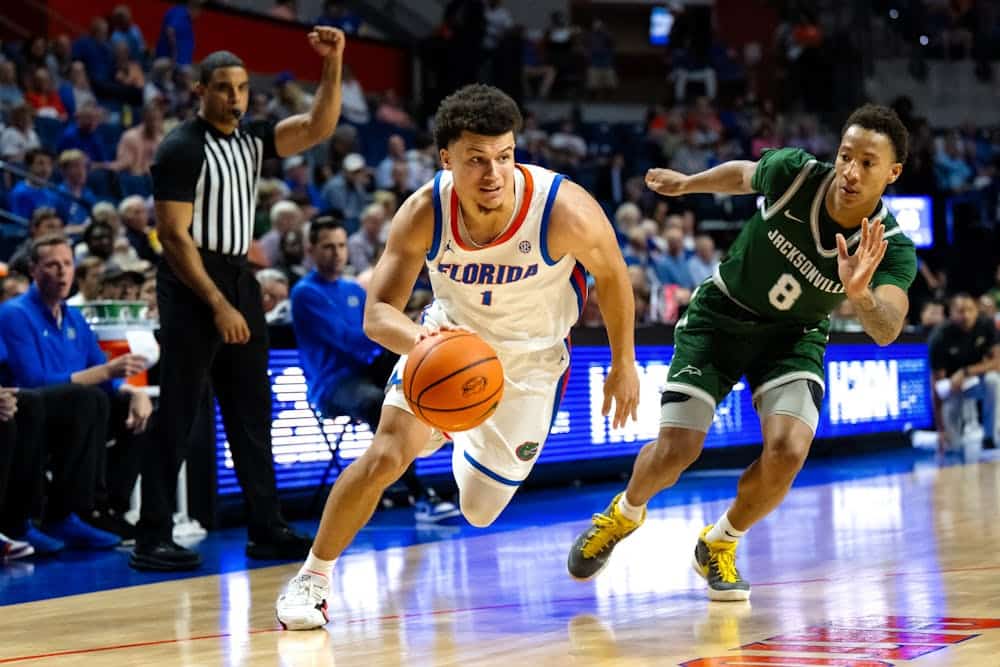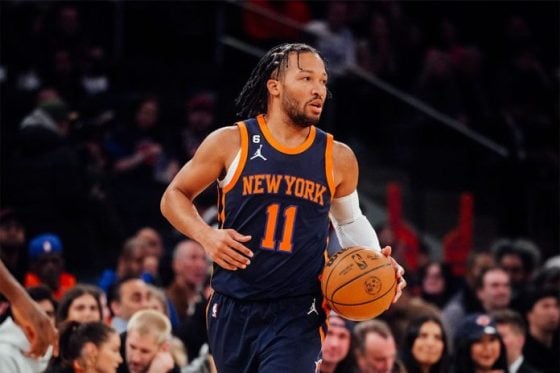Jrue Holiday’s arrival in Boston came after undergoing extension talks with the Bucks last summer, saying then that he hoped to stay in Milwaukee for the remainder of his career. Soon, he landed in Portland after the shocking Damian Lillard trade, assessing various destinations where the Trail Blazers could re-route him before training camp. Holiday quickly settled on the Boston Celtics as his preference.
So it came as no surprise that, despite Boston and Holiday being unable to discuss an extension until April due to NBA trade rules, the guard told MassLive this week that he hopes to remain a member of the Celtics long-term rather than going into free agency this summer. This could mark the end of Holiday’s four-year contract if he opts out of his $37.4-million final season for 2024-25, as MassLive also reported he would be expected to.
While it seems inevitable that Holiday will return to Boston next year in some capacity, it’s less clear how the Celtics will juggle a potentially league-leading salary commitment once Jayson Tatum signs a super max extension this offseason and Derrick White agrees to a long-term deal with Boston. Tatum’s new contract would begin in 2025-26, as would White’s, while Jaylen Brown’s super max starts next year alongside Kristaps Porzingis’ new $30-million salary across the next two years marks a small decrease from his current salary.
The Celtics have to hope both Holiday and White work with the team like Porzingis did to find a more manageable cap figure to allow the team to stay together. Wyc Grousbeck has given Boston the green light to spend whatever it needs to in order to win now, as Brad Stevens said multiple times, but it’s unclear how far and long that’ll extend. Especially when the new NBA CBA implemented a new apron structure that heavily penalizes teams that spend at the top-level in the league, including larger multipliers on the highest spenders and the eventual repeater tax the Celtics will face.
This year’s roster will cost a projected $222,586,556, including $39.1-million in luxury tax in what’ll become the team’s second straight year above the tax line. The repeater tax begins when teams spend three out of four years there, so those extra penalties on Boston would begin for the 2026 season when their largest salary commitments start. During that season, Tatum will make roughly $52.2 million, Brown $53.7 million and Porzingis $30.7-million with White and Holiday both due to cross that $30-million threshold at least. By then, Al Horford, Sam Hauser and Luke Kornet’s current deals will finish too.
Let’s start with Holiday, since White is signed for one more year at $19.6 million. If he declines his player option, Holiday’s eligible to sign a four-year deal that begins at a maximum 140% above what he made this season, so up to around $51 million before up to 8% raises. While that figure is improbable and unfeasible for the Celtics, with Holiday approaching $300-million in career earnings, it’s worth considering whether Holiday would take a pay cut below what he’s making now to help keep Boston’s roster together long-term. Holiday’s agent is Jason Glushon, who negotiated Brown’s super max and Horford’s current two-year, $19.5-million contract that runs through 2025. Neither providing Boston a break.
“I think everybody kind of knows we’re set and we’re set for a long period,” Holiday told MassLive. “No matter what happens, you are going to come back here with the same guys for the most part. Things happen but I think you lock into that, being able to have that comfortability and just kind of that pressure off of you about what’s next.”
Holiday and Boston are eligible to agree to an extension six months after his trade to the Celtics, which falls on Apr. 1. If Holiday and White both effectively split a max contract, worth roughly $25-30 million in year one and $100-120 million over the length of the deal, it’ll allow the Celtics to pay under $200-million for next year’s team with a similar $30-million tax hit. Of course, Boston won’t be able to utilize the mid-level exception, aggregate salaries in trades, take in any amount of money more than they send out in a deal and will see their draft pick seven years into the future frozen, among other restrictions.
White is currently capped at a $27.4-million starting salary in his new contract due to his relatively low current deal. That allows some negotiating room below that max number, approximately $123 million over four years, though avoiding White becoming one of the 2025 summer’s top unrestricted free agents with unlimited room to drive up his worth would seemingly be an incentive to decide on his contract this summer, when he’s eligible to extend. A $25-million deal for White and Holiday would cost the Celtics $188.8-million between seven players. That alone reaches the expected luxury tax line that season, with any extra demands beyond that bare minimum thrusting Boston into repeater territory.
That underscores the importance of these next two years because as Gordon Hayward and Horford previously taught the Celtics, there’s no guarantee of a home town discount. Especially in an era where fewer top-level players reach free agent. For Boston, Holiday’s desire to stay with the team for the rest of his career could help beginning this spring.
“My last extension was during the course of the year,” Holiday said. “I think that we can do both, talk about it and as well as prepare for games and prepare for what the future is.”






